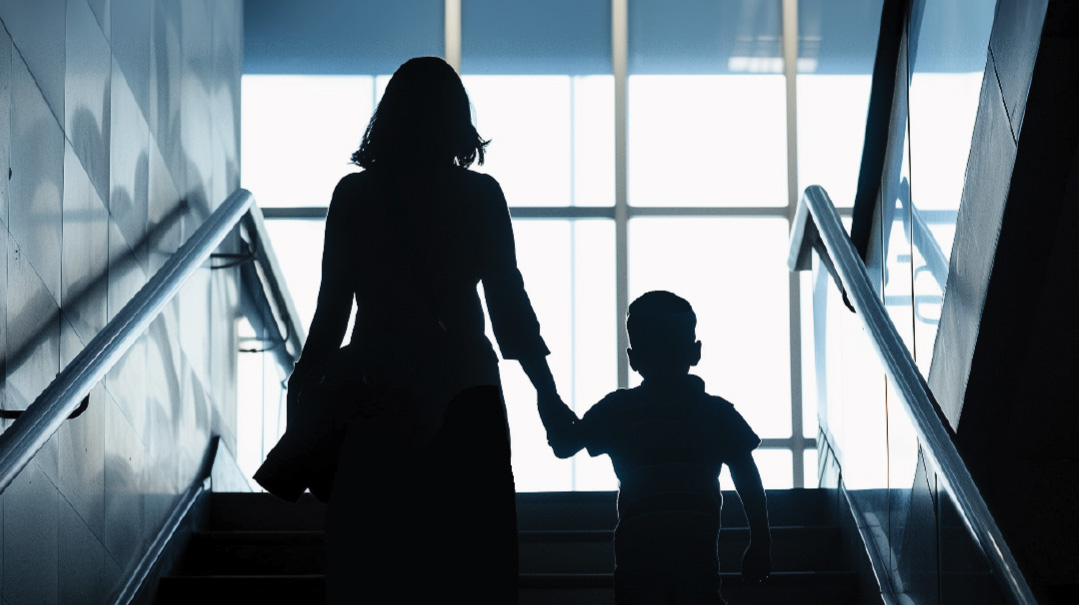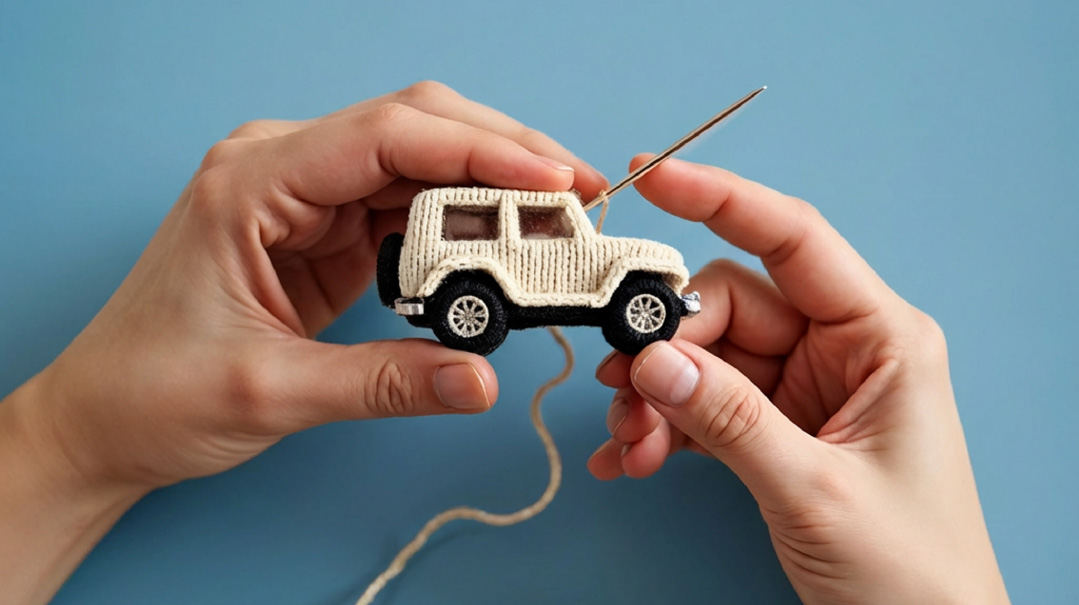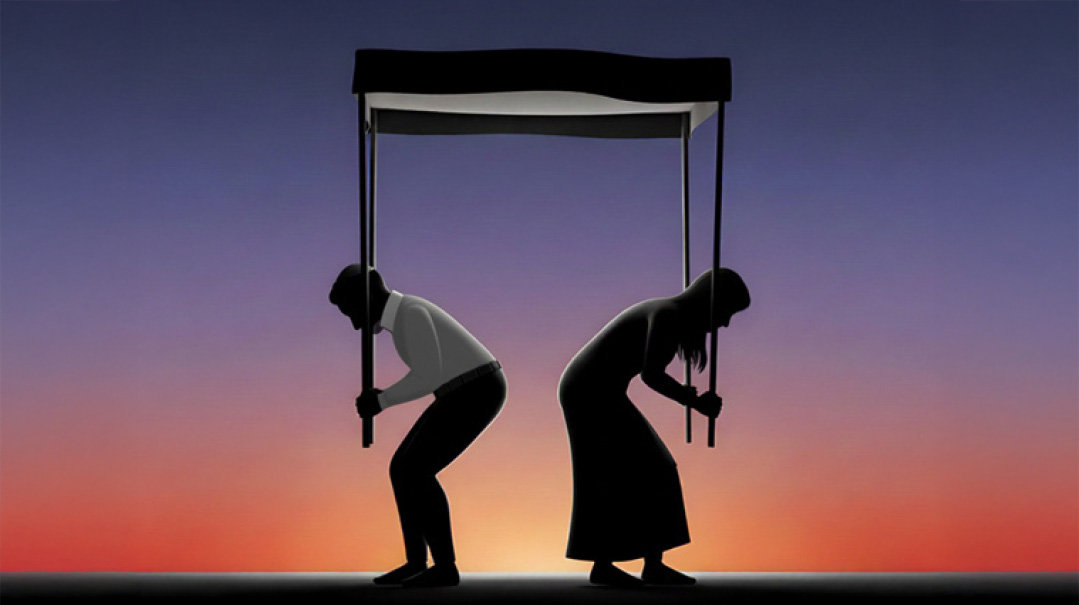Growing Pains

However they get there, bottom line is that our children know what’s happening

It’s a sunny June afternoon and my youngest son is sprawled on the living room floor along with a few friends. I’m in the kitchen shaping burgers. The boys have unloaded boxes of Playmobil and staged a scene featuring various vehicles and figures, helicopters and an airplane. The game seems tranquil enough that I only have to check on them occasionally.
Then the play session gets louder, more animated. There is something very intentional and intense in that affected helicopter buzz. The high childish voices are barking now. Take the hostages! Grab them and get them out of here before the Arabs shoot!
A raw burger lies limply in my hands as I focus on the drama taking place in the living room, a not-too-inaccurate reenactment of the hostage rescue that took place in Gaza a few weeks ago.
I consider the world that these second-graders inhabit, the events that are their reality and the fodder for their play sessions. My own brothers used to play “Hatzalah Man” growing up in Brooklyn. They also reenacted dramatic lifesaving rescues. Maybe the scene taking place in my Jerusalem home in 2024 isn’t all that different.
Maybe? There’s only so much I can delude myself.
At the dentist a few months ago, I settled one of my kids into the chair and offered a good morning to the hygienist. With somber dark eyes and a tight tichel, she was a new face for this practice, and I saw that she wasn’t quite at ease. “No one gets it perfect in the beginning,” the dentist encouraged her as she tentatively maneuvered the suction. “It takes time to learn, but before you know it, you’ll be an expert.”
The conversation unfolded and I learned that the new hygienist was a mefunah, an evacuee from Sderot. As the dentist drilled and filled, we heard about this woman’s Simchas Torah nightmare, about her daughter who’s in trauma therapy ever since, and about her accommodations in a hotel where she won’t eat meat or chicken, due to kashrus concerns. “We’re getting tired of fish,” she said. “But we can’t go back home yet. Our apartment is now an army base.”
I don’t know about you, but when I was a little girl at the dentist, this was not the type of conversation I overheard.
Another child of mine came home a few days after Simchas Torah with the casual announcement that he had some new boys in his class. I gave him the typical, “It’s really hard to be the new boy and I hope you’ll be very nice to them” speech. I left out the not-so-typical part: “It’s really hard to be a new boy in a new school because some nasty people across the border are bombarding your neighborhood with missiles. And it’s even harder to face the fact that your government, with its high-tech mighty army, can’t guarantee the basic safety of its citizens.”
It’s nine months later. The school year will soon be drawing to a close. Some of those boys were able to move back to their homes. One of them is still here. His parents have no idea what the plan is — or if a plan even exists — to ensure they can one day return to their quiet yishuv in the North.
A few years ago, Mishpacha’s editorial board conducted a brainstorming session focused on the weekly children’s magazine. We sifted through the existing content and discussed plans for new material, trying to pinpoint what we could improve.
What were kids talking and thinking about that wasn’t yet reflected in the weekly mix? News, one editor suggested. Yes, news! another agreed. Everyone around that table confirmed it: My kids are obsessed with Trump. My kids keep coming home from school with new conspiracies about Putin. My 10-year-old son knows the breakdown of the Senate and House better than I do.
I know the people who were sitting around the table, and I know that none of their children had open access to news streams or sites. All of these children were getting filtered, even extremely filtered, versions of the news — the type of information that one savvy kid picks up while listening in on adult table talk, then reports during recess, after which another kid pieces together the class maven’s version with the snippets he read in last week’s heimish news coverage or heard outside shul.
Or maybe it’s just imbibed living among adults who check the news before, during, and after the morning routine, then again before supper and then again afterward — whose constant concern and interest in the ever-unspooling newsreel is so pervasive that it spills into emails and phone conversations and even sheva brachos jokes.
However they get there, bottom line is that our children know what’s happening. Which means that even if we’re doing our best to keep things “normal” at home, to relay only good news — or a positive spin on worrying news — our kids have already deduced that something has shifted for Jews in today’s world. We’ve always taught them that being different means being special. Now they’re seeing it also means being hated. As shielded as they may be from the ugliness of the news, they have a pretty strong sense that the ground they stand on conceals major fault lines. And they feel the quivering beneath the surface.
Those of us privileged to live in Eretz Yisrael have probably seen our children struggle with this vulnerability before October 7. The people who want to eradicate us live close enough and provide enough vicious reminders that our children can only be so sheltered. One of my children had a series of nightmares after the Fogel family massacre. “How do you know they won’t come to our house?” he sobbed, night after night. Another asked me very bluntly, after the axe attacks in Elad, “Why couldn’t you find a safer place to bring up your kids?”
Across the ocean, the reminders haven’t been as prolonged or pronounced. But now they’re coming faster and bolder, and the kids are sensing them too. They’re wondering about the power of the Squad or the campus protestors. They’re thinking twice about traveling outside the frum bubble. They’ve heard about violence and graffiti and longtime political allies who suddenly aren’t sure whether supporting Jews is the best look this election season.
From the very first time you hold a new child, you feel this deep commitment to be their rock of stability. You want that child to know that no matter what happens, you will protect them. But can you honestly promise your child, “I will keep you safe”? Can you guarantee them that “no one wants to hurt you”? (Can you transmit an authentic Jewish heritage that skips parshas Bechukosai?)
During these last nine months, many of us have looked for concrete, productive ways for our children (and ourselves) to respond to frightening news, and tried to accrue more zechuyos for our nation. In a way, that kind of approach gives stability. It says, “We are a nation that focuses on the long game, and we are going to get through this.”
But we can only convey true security to our children if we feel it within ourselves. I guess that’s what I’m grappling with.
Last week, I was taking my little one up a dark staircase and he instinctively reached for my hand. “When you hold your mommy’s hand, you feel safe, right?” he said.
“Right,” I said. Even though there are some things your mommy can’t save you from, I thought.
Then I remembered David Hamelech’s description of a helpless baby in its mother’s arms. That baby may live in a hostile world, but as long as his mother’s cradling him, he doesn’t feel any fear. The only reality he knows is his mother’s all-encompassing embrace.
I thought about empty towns in the North and empty beds in 120 homes and grieving, empty arms across the country. Then I gave my son’s hand a squeeze and headed up the stairs, trying to convey to him — to myself — that the Master Planner Who calibrates every surge and squall is carrying us through this storm, carrying us tight.
(Originally featured in Mishpacha, Issue 1018)
Oops! We could not locate your form.







